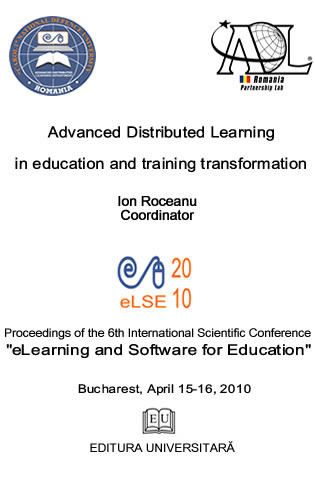THE INFORMATION ECONOMY. FORMAL TRAINING, ADAPTED TO THE NOMADIC UBIQUITY OF INFORMATIONS
THE INFORMATION ECONOMY. FORMAL TRAINING, ADAPTED TO THE NOMADIC UBIQUITY OF INFORMATIONS
Author(s): Daniela Ecaterina Zeca, Vladimir ZecaSubject(s): Education
Published by: Carol I National Defence University Publishing House
Keywords: cronofags objects; virtual forms of unlimited buildups; virtual community; nomadic ubiquity
Summary/Abstract: The forecasts tell us, that if now the volume of knowledges doubles every seven years, by 2030 it will double to 72 days! So, it must be, is and will be stimulated the storage of cronofags objects, in virtual forms of unlimited buildups, but… without the possibility to make use of them! The limited time resource won’t allow humans, as much as they would want to achieve the benefit, of reading till the final, to understand all, to learn all! In the perspective that over 50% of the workers will change residence at less that 5 years apart, and coordinators and their bosses with an even greater frequency- with these figures we will need to think again formal and nonformal education – in terms of nomadic ubiquity of informations and those of virtual community. It is possible to take part in the future to the most important revolution. To this matter it is possible that education services, and also other key services such as social order, to be in time replaced by machines. It is possible to be needed, and thus to appear instruments, hardware and software, that will organize training and knowledges verification.
Journal: Conference proceedings of »eLearning and Software for Education« (eLSE)
- Issue Year: 6/2010
- Issue No: 01
- Page Range: 267-274
- Page Count: 8
- Language: English

